Did you know the Kuwaiti Dinar is the strongest currency in the world? With a value of over $3 USD per dinar, it’s a fascinating example of economic strength in a small but mighty country. Located at the tip of the Persian Gulf, this nation offers a unique blend of ancient traditions and modern skylines.
If you’re planning to visit Kuwait, understanding its currency and payment methods is essential for a smooth trip. From its evolution from the Gulf Rupee to its current banknotes, the Kuwaiti Dinar has a rich history. This guide will help you navigate exchange rates, local payment practices, and cultural insights.
Whether you’re exploring during the cooler months or immersing yourself in the vibrant culture, this guide ensures you’re prepared. Let’s dive into everything you need to know to make the most of your time in this captivating country.
Discovering Kuwait: History, Culture, and Economic Evolution
From its ancient trade routes to its booming oil economy, Kuwait has a fascinating story. This small yet influential nation has evolved from a pearl diving hub to a global economic player. Its rich history is a blend of ancient traditions and modern innovation, making it a unique destination for travelers and business professionals alike.
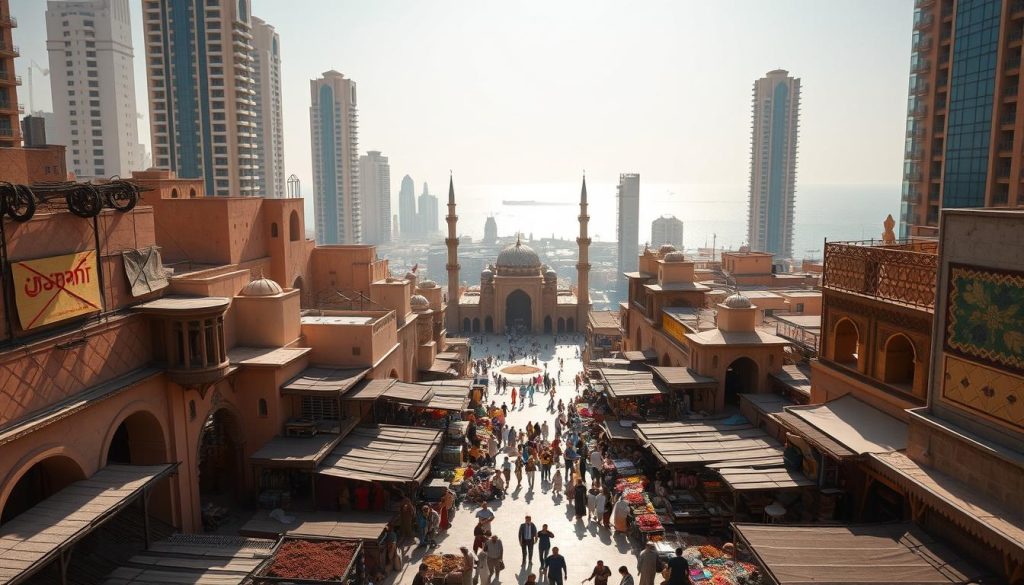
Exploring Kuwait’s Ancient and Modern Heritage
Kuwait’s roots trace back to Mesopotamia, where it served as a vital hub for trade and cultural exchange. Ancient sea routes connected it to neighboring regions, fostering a thriving maritime economy. Pearl diving and shipbuilding were once the lifeblood of its people.
Today, the country’s heritage is preserved in landmarks like Failaka Island. This historic site, dating back to 2000 BC, showcases remnants of ancient civilizations. The Hellenistic-era fortress and Dilmun-era trading settlement are testaments to its rich past.
The Impact of Oil on National Development
The discovery of oil in 1938 marked a turning point for Kuwait. This natural resource fueled rapid economic growth, transforming the nation into a modern powerhouse. Urbanization soared, and skyscrapers began to dot the skyline.
Oil revenues have also shaped Kuwait’s currency and business practices. The Kuwaiti Dinar, one of the world’s strongest currencies, reflects the country’s economic stability. Business meetings here often emphasize personal relationships, a cultural nuance that adds depth to professional interactions.
“Oil has not only built our economy but also our identity,” reflects a local historian.
From ancient trade routes to oil-driven prosperity, Kuwait’s journey is a testament to its resilience and adaptability. Whether you’re here for travel or business, understanding this evolution enriches your experience.
Kuwait: Ultimate Travelers Guide to Currencies & Payments
The story of Kuwait’s currency is a fascinating journey through time. From its early ties to the Indian Rupee to the introduction of the Kuwaiti Dinar, the nation’s monetary system reflects its economic and cultural evolution. Understanding this history enriches your experience as a traveler.
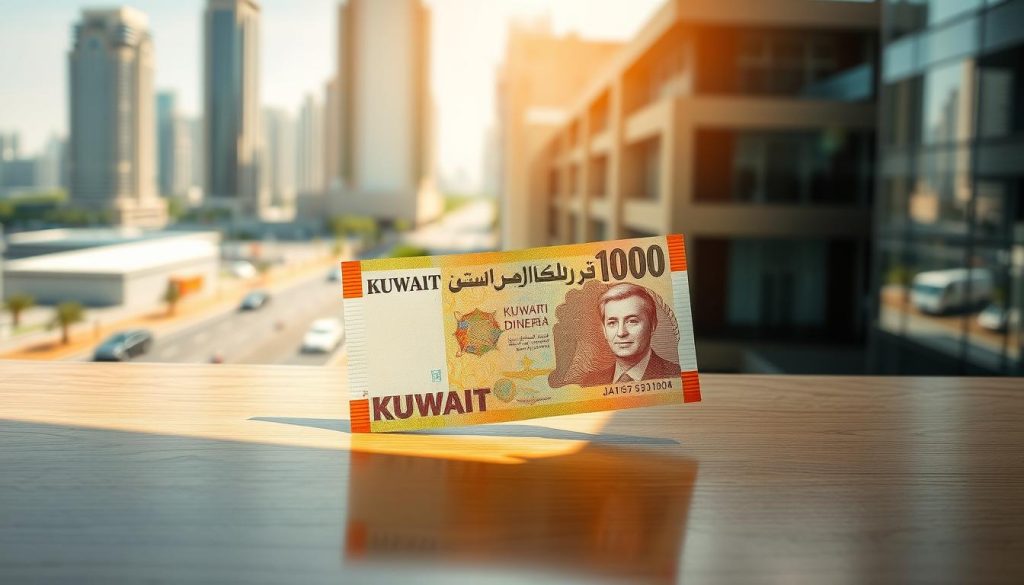
The Rise of the Kuwaiti Dinar and Its Global Strength
The Kuwaiti Dinar is one of the strongest currencies globally, valued at over $3 USD per dinar. Its strength is a testament to the country’s economic stability and oil-driven prosperity. Banknotes feature tactile textures for the visually impaired, showcasing inclusivity in design.
Each denomination highlights Kuwait’s heritage, with traditional vessels and architectural landmarks. These designs celebrate the nation’s past while embracing modern innovation. For travelers, handling these banknotes offers a glimpse into the country’s identity.
A Brief History of Currency Evolution
Kuwait’s currency journey began with the Gulf Rupee, tied to the Indian Rupee during British rule. In 1961, the Kuwaiti Dinar was introduced, marking a new era of economic independence. This transition symbolized the nation’s growing autonomy and global influence.
Historical events, like the Iraqi invasion in 1990, led to currency redesign. The re-issued dinar in 1991 restored economic stability and national pride. Today, the currency stands as a symbol of resilience and progress.
| Denomination | Design Features |
|---|---|
| 1/4 Dinar | Traditional dhow boat |
| 1/2 Dinar | Kuwait Towers |
| 1 Dinar | Grand Mosque |
| 5 Dinars | Liberation Tower |
| 10 Dinars | Central Bank building |
| 20 Dinars | Failaka Island ruins |
When planning your trip, consider the best season for flights and accommodations. Understanding the currency’s history adds depth to your journey. Whether you’re here for business or leisure, the Kuwaiti Dinar is a gateway to the nation’s story.
Navigating Payment Options and Currency Exchange
Navigating payment options in a foreign country can be tricky, but with the right knowledge, it’s a breeze. Whether you’re exchanging money or using local ATMs, understanding the system ensures a smooth experience. Let’s break down the essentials to help you manage your finances like a pro.
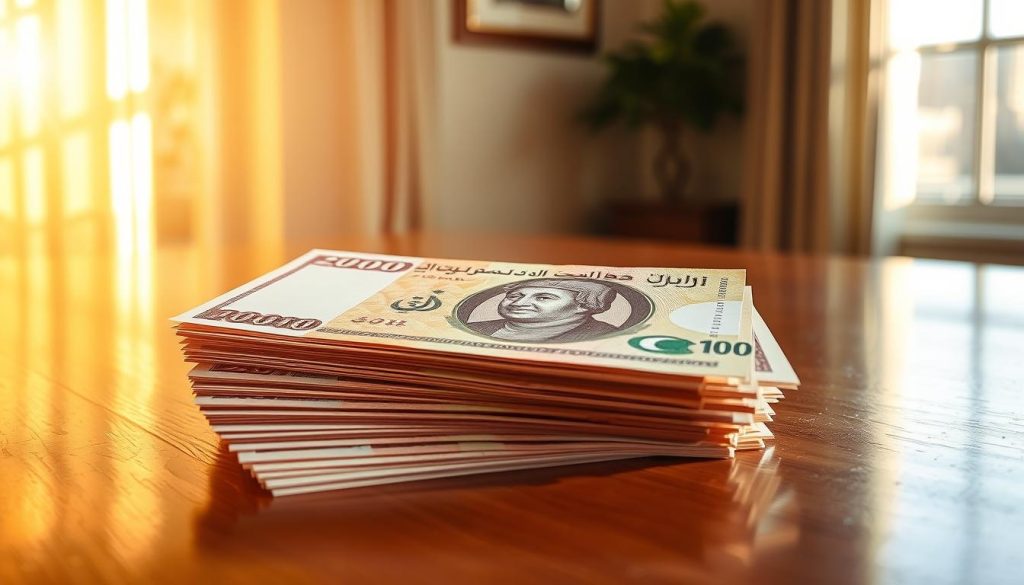
Understanding Current Banknotes and Denominations
The local currency features banknotes with unique designs and tactile features. Each denomination highlights cultural landmarks, making them easy to identify. For example, the 1 Dinar note showcases the Grand Mosque, while the 20 Dinar note features Failaka Island ruins.
These banknotes also include textures for the visually impaired, ensuring inclusivity. Whether you’re handling a 1/4 Dinar or a 20 Dinar note, each one tells a story of the nation’s heritage.
Comparing Currency Values and Exchange Rates
When traveling from the United States, understanding exchange rates is crucial. The local currency is strong, often valued at over $3 USD per dinar. This means your dollar stretches less, so planning ahead is key.
Here’s a quick comparison to major currencies:
- 1 Dinar ≈ $3.30 USD
- 1 Dinar ≈ €3.10 EUR
To get the best rates, avoid airport exchanges. Instead, use local banks or currency apps for real-time updates. These tools can save you up to 3% on transactions.
Practical Tips for Currency Exchange and ATMs
Currency exchange facilities are widely available in major areas. Look for banks or authorized centers to ensure fair rates. ATMs are also a convenient option, especially in urban markets.
Here are some tips to maximize your experience:
- Withdraw larger amounts to reduce transaction fees.
- Carry a mix of cash and cards for flexibility.
- Set alerts on currency apps to track favorable rates.
Currency Insurance and Safe Practices
Protecting your money is essential. Consider currency insurance to safeguard against fluctuations. This is especially useful for long-term stays or large transactions.
When handling cash, keep it secure and avoid displaying large amounts in public. Use hotel safes or hidden wallets for added safety. These small steps ensure your financial peace of mind throughout your trip.
Visa Requirements and Travel Regulations
Planning a trip to this Middle Eastern destination? Start with understanding its visa requirements. For U.S. travelers, obtaining a visa is straightforward but requires careful preparation. Whether you’re visiting for business or leisure, knowing the process ensures a hassle-free entry.
Essential Visa Information for U.S. Travelers
U.S. citizens need a visa to enter this country. The process typically involves submitting an application, passport copies, and proof of accommodation. Many international hotels can assist with visa arrangements, making it easier for tourists to focus on their trip.
Visas can be obtained at the port of entry or through the embassy. Processing times vary, so apply well in advance. Ensure your passport is valid for at least six months beyond your travel dates. This is a crucial step to avoid delays.
Travel Advisory and Customs Guidelines
Before you travel, familiarize yourself with local customs and prohibited items. Alcohol and pork products are strictly banned. Respecting these rules is essential to avoid fines or confiscation at customs.
Dress codes and language norms also play a significant role. Modest clothing is recommended, especially in public spaces. Learning a few basic phrases in the local language can enhance your experience and show cultural respect.
Here’s a quick guide to planning your trip:
- Visit during cooler months (November to March) for pleasant weather.
- Book hotel accommodations and flights early, especially during peak tourist seasons.
- Check local event calendars to avoid overcrowding or closures.
Traveling during summer? Be prepared for extreme heat, with temperatures often exceeding 104°F. Staying hydrated and planning indoor activities can make your trip more enjoyable.
| Item | Guidelines |
|---|---|
| Passport Validity | At least 6 months beyond travel dates |
| Visa Processing Time | Few days to a few weeks |
| Prohibited Items | Alcohol, pork products |
| Best Time to Visit | November to March |
Understanding these regulations ensures a smooth journey. Whether you’re here for a short visit or an extended stay, being prepared makes all the difference. Enjoy your trip with confidence!
Business Customs and Communication in Kuwait
Understanding local business customs is key to thriving in international markets. In this Middle Eastern nation, building trust and personal relationships is essential before diving into business discussions. Taking the time to connect on a personal level can make all the difference in your professional success.
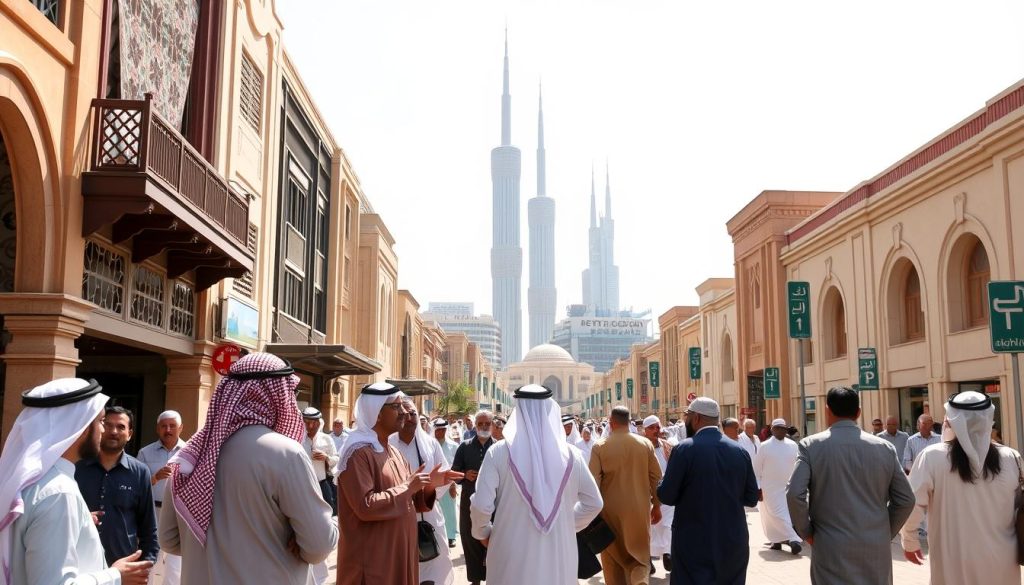
Building Personal Relationships for Successful Business
In this region, business is often built on trust and mutual respect. Before discussing deals, it’s common to engage in small talk about family, health, or even the water resources that sustain the area. This approach helps establish a strong foundation for future collaboration.
Scheduling appointments in advance is crucial. Local work hours and holiday schedules should be respected. For example, weekends here fall on Friday and Saturday, and many businesses close during public holidays.
Language, Protocol, and Cultural Nuances
Arabic is the official language, but English is widely used in business settings. Contracts often require dual-language versions, ensuring clarity for all parties. This practice reflects the nation’s role as a global business hub in the world.
Greetings are formal, with handshakes being the standard. It’s polite to address colleagues by their titles and surnames. Conversations often start with inquiries about well-being, reflecting the culture’s emphasis on personal connections.
| Aspect | Guidelines |
|---|---|
| Greetings | Handshakes, use titles and surnames |
| Appointments | Schedule in advance, respect local hours |
| Language | Arabic and English for contracts |
| Negotiations | Be patient, avoid aggressive tactics |
By following these customs, you’ll navigate the local business landscape with confidence. Whether you’re visiting the Grand Mosque or closing a deal, understanding these nuances ensures a smooth and respectful experience.
Transportation, Lodging, and Local Attractions
Exploring a new destination is exciting, but knowing how to get around, where to stay, and what to see makes it even better. Whether you’re here for a short visit or an extended stay, this guide covers everything you need for a seamless experience.
Getting Around: Air, Road, and Car Rental Options
Traveling here is convenient with multiple transportation options. Air travel connects you to major cities, while road networks make it easy to explore. For flexibility, renting a car is a popular choice. Companies like Avis and Hertz offer daily rates starting at $34.
Public buses are affordable but limited in coverage. Taxis and ride-hailing apps like Careem are reliable for shorter trips. A 7 km ride typically costs around $5. Keep in mind, the weather can affect travel plans, especially during summer months.
Where to Stay: From Budget to Luxury Accommodations
Accommodation options cater to all budgets. Budget travelers can find hostels like Aladdin Hostel for $26 per night. Mid-range hotels, such as Swiss-Belinn Sharq, offer comfortable stays at $130 per night, including airport transfers.
For luxury, the Four Seasons Hotel provides rooftop pools and spa services. Use local websites to compare reviews and rates. Booking in advance ensures better deals, especially during peak seasons.
Must-Visit Landmarks and Cultural Highlights
This destination is rich in culture and history. The Grand Mosque, accommodating up to 10,000 worshippers, is a must-see. Tours are available Sunday to Thursday. The Kuwait Towers offer stunning views for $10, while Failaka Island showcases ancient ruins.
For shopping, the Avenues Mall features over 1,100 stores, including gold shops. Don’t miss the Islamic Calligraphy Museum, home to 10,000 artefacts. When it comes to food, try street favorites like falafel or dine at upscale restaurants for authentic cuisine.
“Exploring this city is like stepping into a blend of tradition and modernity,” says a local tour guide.
With these tips, you’re ready to make the most of your trip. Whether you’re navigating the streets, enjoying local delicacies, or marveling at landmarks, this guide ensures a memorable experience.
Conclusion
Exploring a new culture is always an adventure, and understanding its financial and travel systems makes it even more rewarding. The dinar, one of the world’s strongest currencies, reflects the country’s rich history and economic stability. Its value and design showcase a blend of tradition and modernity.
Before your trip, it’s a good idea to review essential requirements like visa processing and local customs. Planning ahead ensures a smooth experience, especially when it comes to transportation and accommodations. Booking early can save you time and money.
Understanding local trade practices and business customs is another valuable tip. Whether you’re here for leisure or work, respecting cultural norms enhances your journey. Keep these insights in mind as you prepare for your trip.
For more practical advice, explore trusted resources to gain additional tips. With the right preparation, your visit will be both memorable and hassle-free. Enjoy your adventure!
The above is subject to change.
Check back often to TRAVEL.COM for the latest travel tips and deals.
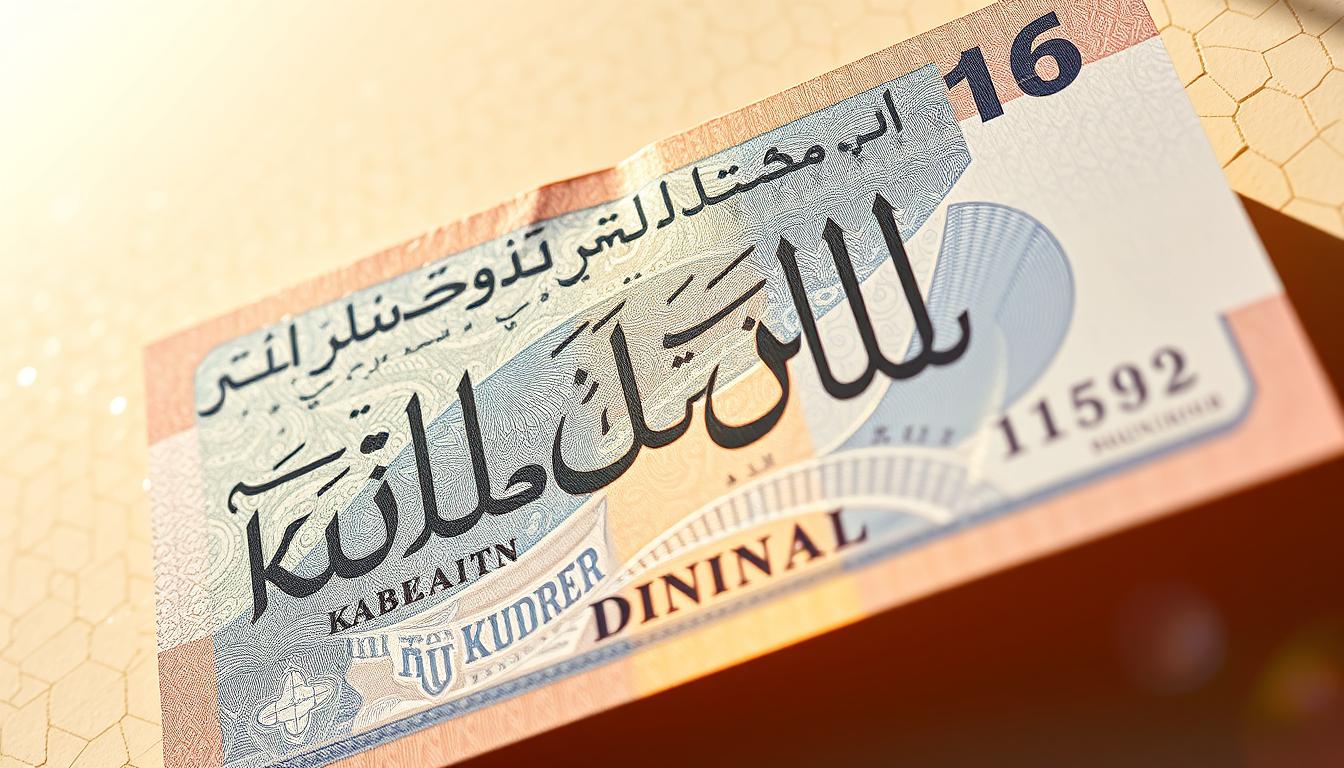

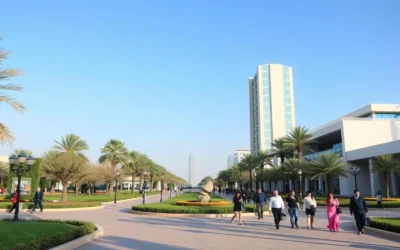
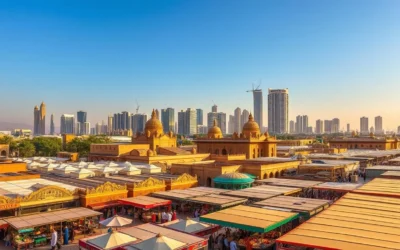
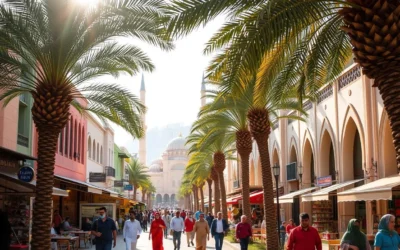
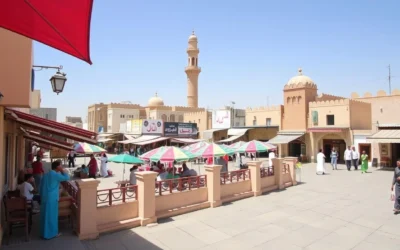

0 Comments